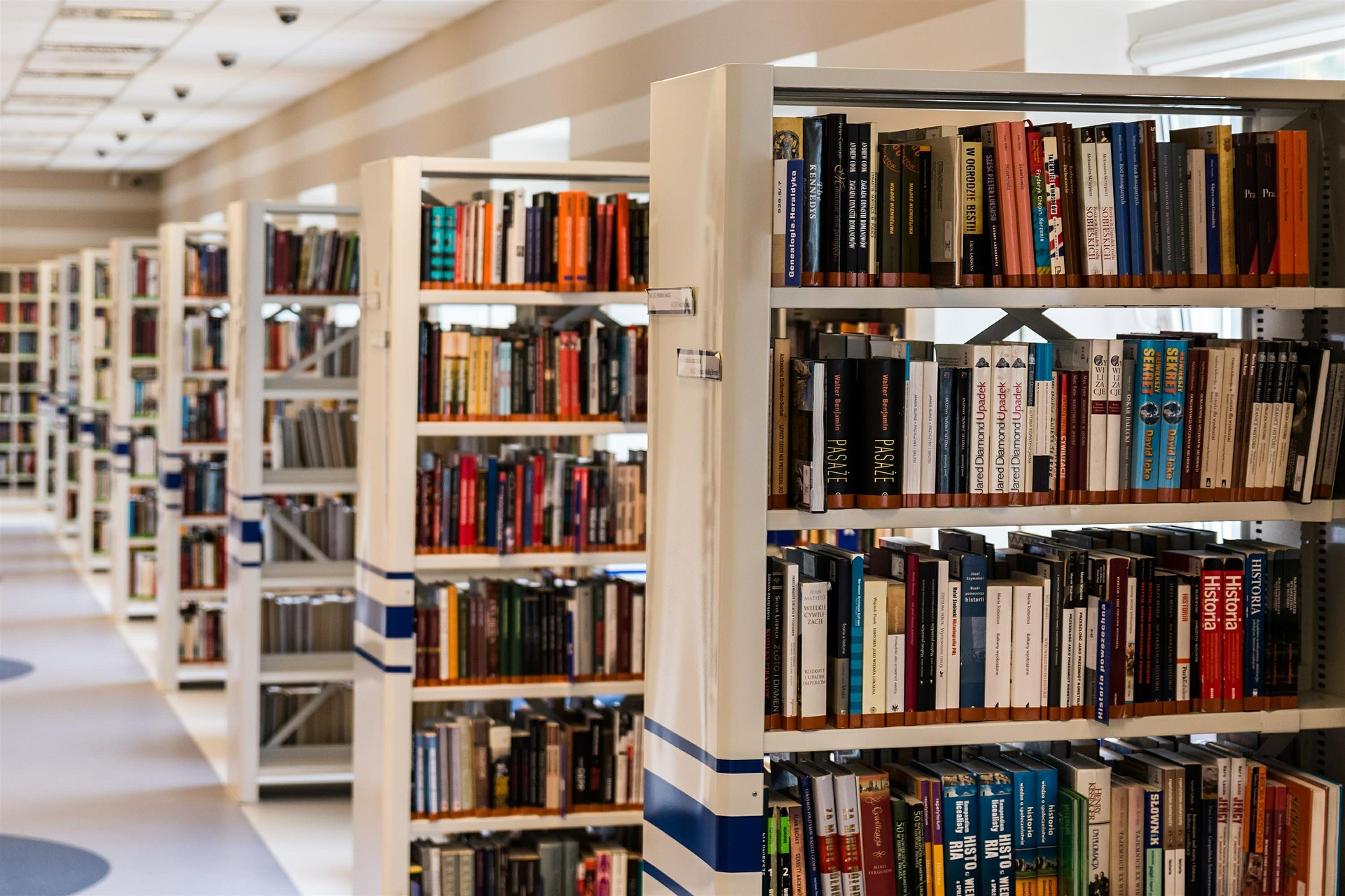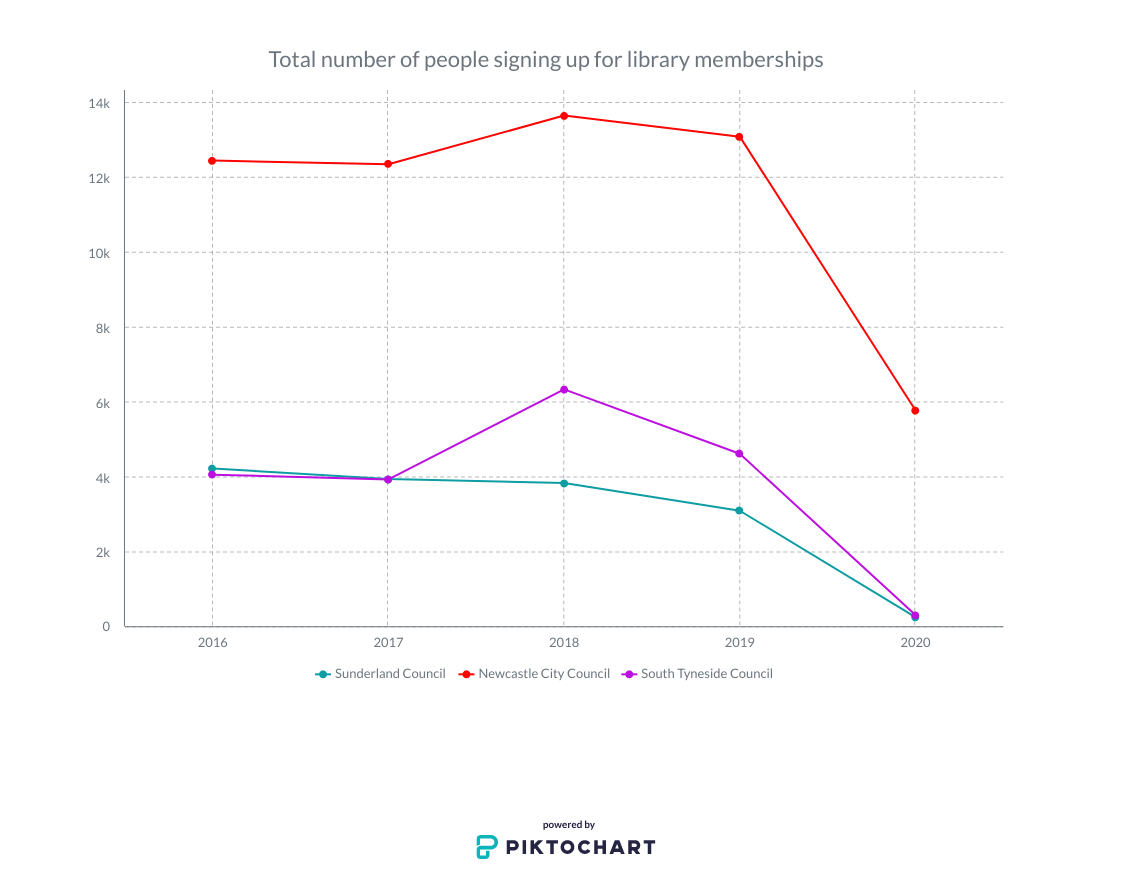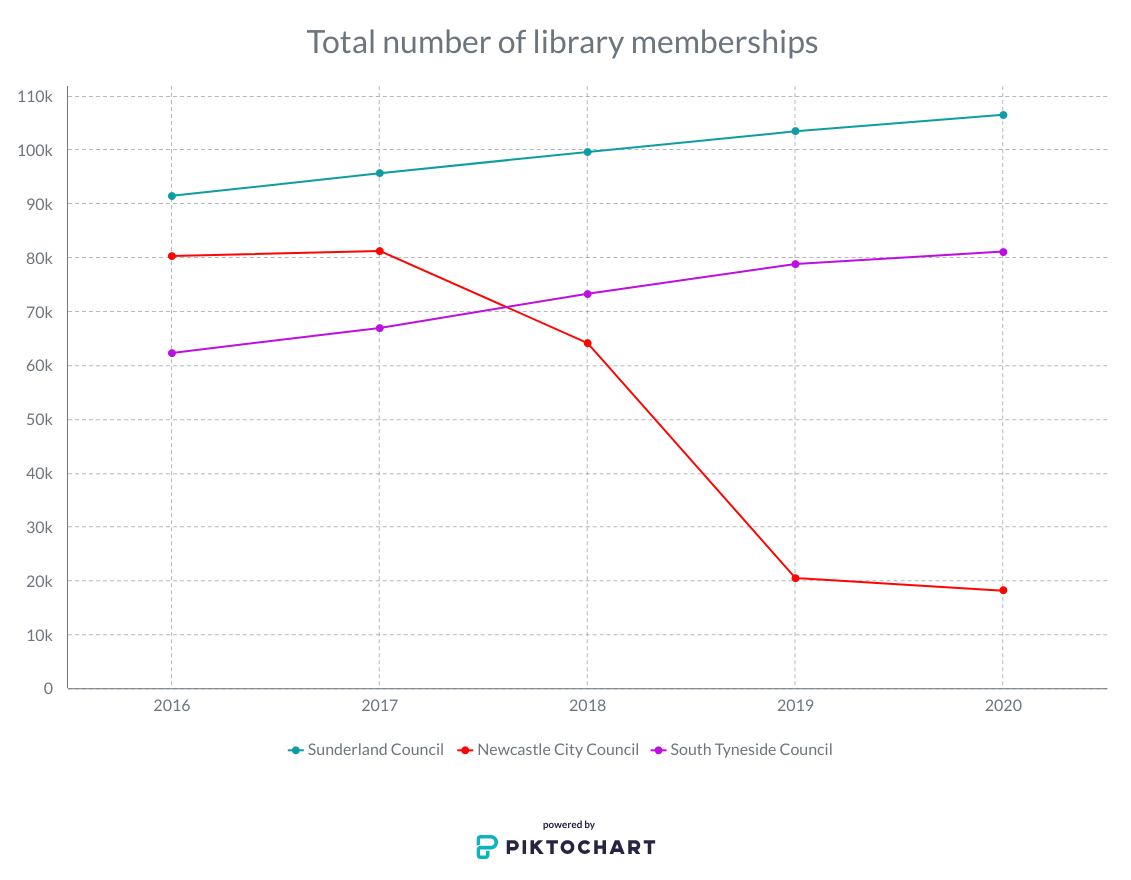
THE number of people signing up for library memberships in the North East has fallen, according to the latest local authority figures.
According to data from Freedom of Information (FOI) requests, in the Sunderland Council area 4,215 people signed up for a library membership in 2016, compared with 3,088 in 2019.
Similar drops were recorded in other North East council areas, with many library membership sign-ups just reaching triple figures in 2020, before the Coronavirus pandemic hit.

Although these numbers have fallen, the total number of library memberships across the region have generally remained consistent, with the exception of Newcastle City Council.

With sign-ups falling, questions and concerns have been raised about how libraries will adapt to life post-pandemic.
Despite the apparent fall in people signing up for memberships, libraries have served as an integral part of communities throughout the pandemic.
Luke Burton, service manager for Community Hubs and Libraries at Newcastle City Council, said that during lockdown, many libraries were still operating.
“We have our voluntary service to deliver items to homes and we’ve had people phone up and have us leave audio books outside the doors of City Library,” he said.
One library assistant in the Sunderland Council patch added that her library had also done this, as well as seeing library regulars set up reading groups over Zoom to keep in touch.
While doing this, she explained, staff were also offering additional services outside of the library’s usual remit.
She said that during the first lockdown many over-70s were forced to shield and her library kept in touch with them. Staff rang those in vulnerable groups to help pick up shopping and medication, as well as providing conversation for those who felt especially isolated and needed a familiar voice to talk to.
Although people could not enter the libraries, she found that people were signing up for online membership, meaning that people had two memberships for the library.
With the online memberships readers could download e-books and other resources to keep occupied during the lockdown.
Libraries are looking to provide more digital resources and support around accessing these in order to keep up with 21st century demands, something Mr Burton says is happening across the country.
“In the last five or six years there’s been a heavy focus, not just in Newcastle but generally, on the role that libraries have to play in a digital inclusion [to help] people who don’t have access to hardware, don’t have access to WiFi or don’t have the skills to use a computer or a mobile device.
“We’ve done a lot of work on one-to-one and group sessions about how you use your smartphone, how you use your tablet, Word or Excel, so I think libraries have still kept themselves relevant in that way with digital inclusion.”
The move towards more digitisation is one part of regeneration programmes happening in Sunderland currently.
Libraries are at the heart of for Sunderland council’s new Culture House development.
In a statement, councillor Linda Williams said: “We are all very determined to continue raising the profile of our cultural venues, events and programmes, and we are continuing to work with national and local partners on achieving this.
“This work includes the development of a £27m Culture House as part of the Central Business District in Riverside Sunderland. Initial plans for the house include an 80,000-square-foot library and archive facility with an indoor city square, a learning zone, creative/making spaces, local history section and archives, an events space, plus a café and outdoor space.”
Although moves are being made towards digitisation and use of digital technology, libraries still remain an integral part of communities.
The library assistant from the Sunderland Council area suggests that even with these digital resources, people will still come into libraries.
“You still have your ‘traditionalists’ who make up about half, three quarters of readers, who still like a book and will stay and browse,” she said.
“To people it’s like a day out. As staff, you used to get regulars and you miss them when you haven’t seen them for a while.”
She also added that libraries are a safe space for many – including the homeless, who were able to come in and spend the day in a warm place.
One of the biggest challenges post-pandemic will be to reassure people that libraries are safe, and Mr Burton thinks some effects of the pandemic may prove handy for this.
“I definitely think one of the challenges will be how do we get people back in and reassure them,” he said.
“I think there’ll be some definite changes as a result to the response to Covid and I think we’ll be seeing a lot more in availability of online content through e-books, magazines, audiobooks, comics, but also as a desire from libraries to be able to continue working to these resources.
“I think there’s going to be a hybrid element around events. One time we had 180 people in our biggest space for an author event.
“We might not go back to these levels, but if we do, we might have 180 people in a building and 500 people dialling in on Zoom or Teams. I think there’ll be an increased element of that.”



